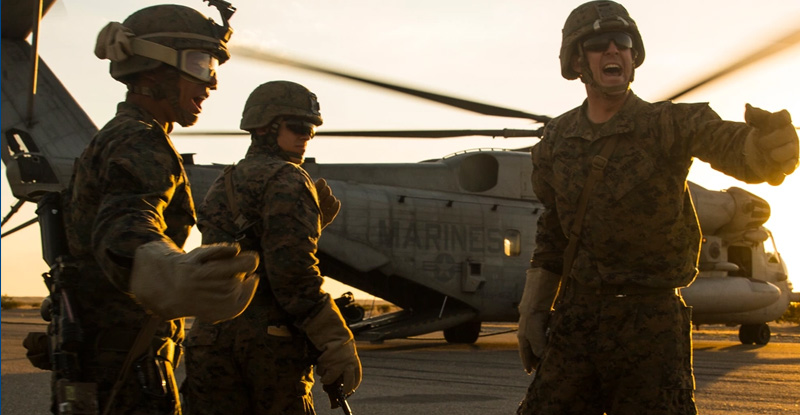In 2018, a Marine general who heads the service’s training command wrote about his concern that the “pursuit of ensuring fair and equitable opportunity” had allowed a female Marine candidate demonstrating “dangerously poor performance” to continue a key course.
“This could have resulted in a MISHAP,” Maj. Gen. Kevin Iiams, the commanding general of Marine Corps Training and Education Command, wrote in an email to other Marine Corps officers obtained by Military.com through a government records request.
The candidate was undertaking the Corps’ grueling 15-week Infantry Officer Course.
“Did we let this 2Lt go to [sic] far before ending her training?” Iiams wrote in the email.
Iiams was serving as the commander of the Corps’ training command at Quantico, Virginia, as a two-star general at the time he wrote the email. After a pair of other postings and promotion to lieutenant general, Iiams returned to the same position in 2021, a job he still holds today.
A Training Command spokesperson told Military.com that Iiams’ email was to ensure the Marine was being evaluated at the appropriate level of performance, and that she was not being pushed beyond what is appropriate for safety.
Nearly 90 pages of internal communications from Marine leadership regarding gender integration efforts at IOC obtained by Military.com highlight growing pains as the Corps adapted its infantry officer training following the opening of combat arms to women in 2013. . . .
. . . . The emails obtained by Military.com provide a glimpse into the Corps’ navigation of changes at IOC and how top-level leadership tracked the progress and performance of women at the infantry course, including an example of how leaders struggled with how to handle one candidate soon after the course was opened to women.
In early 2018, leadership at the Corps’ Training Command sent a flurry of emails over a four-hour period regarding a dropped IOC female candidate due to her subpar performance and a range safety violation.
Col. Mark Clingan, the commanding officer of The Basic School, emailed Brig. Jason Bohm, the commanding officer of Training Command, a summary of the female IOC candidate’s performance at the course.
During a 6.45-mile hike with a 115-pound load, the female Marine student fell a couple of hundred meters behind during the last two miles of the march.
During the Combat Endurance Test, or CET, she had trouble climbing a rope a second time on a double obstacle course, Clingan’s email detailed.
“She also failed several tests during the CET that she had previously taken,” the email reads.
The CET, renamed the Combat Endurance Assessment, was dropped as a graduation requirement in 2017, but is used as an assessment tool to gauge a student’s ability to graduate IOC. The CET became an IOC graduation requirement in 2012.
At a basic skills live-fire event, she “demonstrated the inability to manipulate her weapon and completely failed to clear a bolt override malfunction at the malfunction test station.
She also could not provide proper direction/coaching to get her classmate on target during the buddy pair night live fire shoot.
Ultimately she failed at providing and receiving simple instruction,” Clingan said in his email.
She was unable to keep the barrel of her M4 and M203 out of the dirt and had to be told to clear the dirt out of her muzzle before continuing, a problem that could cause bullet fragments to go in unpredictable directions, potentially causing injury.
The female candidate “missed badly with her rocket and two 40 mm rounds.
Ultimately she was unable to properly employ any of her weapon systems and assess her surroundings,” the email reads.
During a squad attack live-fire event, she was labeled a safety violator after “she failed to appropriately clear her barrel mask while conducting fire and movement and consequently fired three rounds directly into the SACON structure in front of her and had to be stopped” by a safety officer, according to the email.
The female Marine student “did not demonstrate the knowledge, decision making, or will to complete the Infantry Officer Course. She is an extremely humble officer that will be able to successfully lead Marines in another MOS,” the email detailed.
Her poor performance and safety violation prompted the emails from Iiams, who questioned her length of stay in the course and worries of a potential accident.
According to correspondence between Bohm and Iiams, this was the candidate’s second attempt at IOC. . . . (read more on Military.com)








Leave a Comment